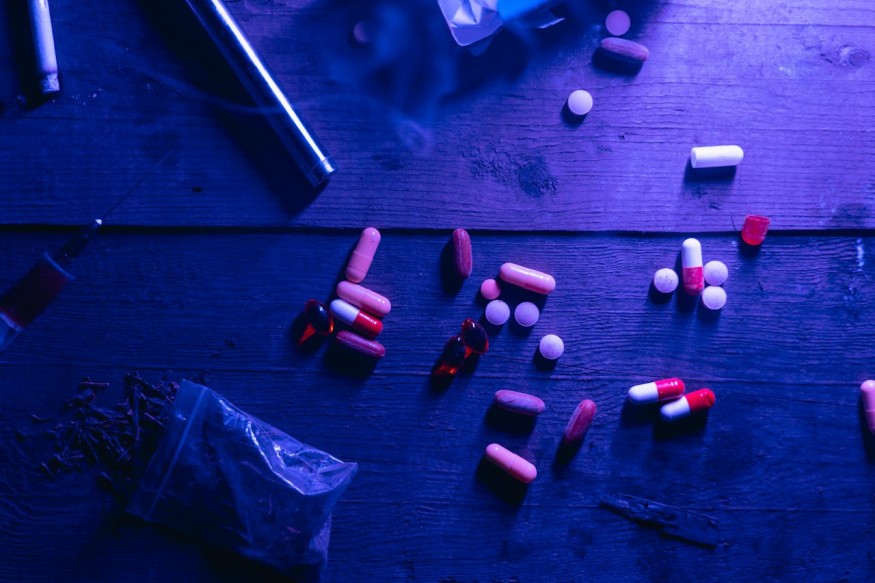
Addiction is a complex condition that affects millions worldwide, yet it remains one of the most misunderstood and stigmatized. These misconceptions can significantly impact those suffering and hinder their path to recovery. Here are several common misconceptions surrounding addiction and how effective treatment options like those offered by TRUE Addiction & Behavioral Health are examples of how understanding and proper care can lead to successful recovery.
Understanding Addiction
Addiction is often seen through a moral lens, regarded as a choice rather than a condition. However, the medical community recognizes addiction as a chronic disorder influenced by a combination of biological, psychological, and social factors. Genetic predisposition, mental health issues, and environmental influences all play crucial roles in the development of addiction. This multifaceted perspective helps in understanding why addiction is not merely a result of individual moral failure but a complex interplay of various elements that require a comprehensive approach to treatment.
Common Misconceptions About Addiction
Addiction is often shrouded in stigma, which is fueled by widespread misconceptions. Debunking these myths is essential for fostering a more compassionate and supportive environment for recovery.
Misconception 1: Addiction is a choice.
Many believe that addiction is simply about choosing to use substances, ignoring the complexities behind the behavior. Addiction involves changes in the brain that challenge an individual's self-control and interfere with their ability to resist impulses to take drugs. This misconception undermines the seriousness of the disorder and the profound struggle that individuals face.
Misconception 2: Addicts are beyond help.
This false belief suggests that once someone becomes addicted, they are a lost cause. However, addiction is treatable and can be managed successfully. Recovery is an ongoing process, often involving setbacks, but with the proper support and treatment approach, individuals can regain a healthy and productive life.
Misconception 3: Addiction only affects certain types of people.
Addiction does not discriminate. It can affect anyone regardless of age, socioeconomic status, race, or gender. Believing it only affects certain groups can lead to dangerous stereotypes that prevent people from seeking the help they need.
Addiction Treatment at TRUE
TRUE (Transforming Roots Unto Eternity) Addiction & Behavioral Health is a distinguished facility in Murfreesboro, Tennessee, offering hope for those seeking comprehensive addiction and behavioral health services. Founded by visionary Ben Dobbs, TRUE emerged from the recognition of a pressing need for elevated standards of care in substance abuse and mental health treatment. The holistic program delves into recovery's physical, emotional, mental, and spiritual aspects, positioning clients for long-term success.
TRUE provides comprehensive treatment options that reflect an understanding of addiction's complexities. Here's how they address addiction through various programs:
Partial Hospitalization Program
The partial hospitalization program (PHP) provides a comfortable and welcoming environment for our clients seeking treatment. TRUE provides PHP treatment that includes evidence-based approaches and holistic therapies critical to recovery. These sessions are held at the PHP rehab center in an intimate setting. With only six to eight patients per group, this program caters to gender-specific groupings and cultural differences.
Intense Outpatient Program
TRUE Addiction and Behavioral Health's intensive outpatient program (IOP) is designed to provide a comforting and supportive setting for those seeking treatment. Patients come from many different circumstances, so TRUE has customized a unique plan that supports their healing journey. TRUE also offers outpatient treatment, which includes various therapeutic approaches such as cognitive-behavioral therapy, family counseling, and group sessions. These programs help individuals reintegrate into their communities while continuing their recovery process.
Sober Living
TRUE's sober living homes offer a wide range of supportive services, including attendance in our partial hospitalization or intensive outpatient program, daily 12-step meetings, weekly group meetings, and monthly recreational activities. These options allow clients to progress in recovery while enjoying flexibility and freedom. For many, transitional housing is the first step to a better life.
The Impact of Stigma on Recovery

The stigma surrounding addiction can have profound and wide-reaching effects on those struggling with substance use disorders. It affects how individuals perceive themselves and influence how they are treated by society, including healthcare professionals, family members, and the workplace. Here are some specific ways in which stigma can impact recovery:
- Reduced Access to Treatment
Stigma often prevents individuals from seeking help due to fear of judgment or discrimination. Many people delay or avoid treatment entirely because they do not want to be labeled as a person with an addiction or fear that it might affect their employment, social standing, or family relationships.
- Social Isolation
Individuals struggling with addiction often experience social isolation as a result of stigma. This isolation can exacerbate feelings of shame and guilt, which can, in turn, increase substance use and hinder recovery efforts. Family, friends, and community support are crucial to the recovery process.
- Impact on Mental Health
Stigma contributes to poor mental health outcomes by compounding stress and decreasing self-esteem. Those experiencing stigma may also suffer from anxiety and depression, making it harder to cope with the challenges of recovery. Mental health issues can become both a cause and a consequence of substance abuse, creating a vicious cycle that is difficult to break.
- Barriers in Healthcare
Stigma can also manifest within healthcare settings, where individuals with substance use disorders might receive substandard care or encounter negative attitudes from medical staff. This discrimination can lead to inadequate assessment, treatment, and support, critically undermining the effectiveness of recovery efforts.
Combating Stigma

Combating stigma is essential for improving both the lives of those affected by addiction and the effectiveness of treatment programs. Education plays a crucial role in this by informing the public about the realities of addiction as a treatable medical condition rather than a moral failing. Advocacy and personal stories can humanize the issue, helping to shift negative perceptions and encourage more compassionate approaches to policy and community support.
Recovery from addiction is not just about stopping substance use but also about healing the whole person and reintegrating them into society. Addressing stigma is thus not only about changing attitudes but also about creating an environment where recovery can thrive.
Understanding addiction and debunking the misconceptions surrounding it are vital steps toward building a more empathetic society that supports recovery and reduces stigma. TRUE's holistic and tailored treatment programs exemplify how comprehensive care can effectively assist individuals in overcoming addiction and reclaiming their lives. Encouraging a deeper understanding and acceptance of addiction as a treatable condition will pave the way for more successful recovery stories.
© 2026 ScienceTimes.com All rights reserved. Do not reproduce without permission. The window to the world of Science Times.












